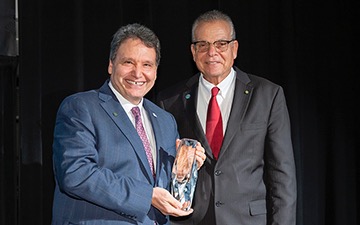Amid the current coronavirus pandemic, a seemingly new threat has emerged, COVID-19 variants. The variants are derivatives from the coronavirus (SARS-CoV-2) that differ from the current and most common strain, D614G, nicknamed “G.”
Since the beginning of the outbreak, these strains have spread and appeared across the world in the U.K., South Africa, Brazil, and now the United States.

According to the CDC, this is a very natural occurrence. “Viruses constantly change through mutation, and new variants of a virus are expected to occur over time. Sometimes new variants emerge and disappear. Other times, new variants emerge and persist.”
However, some of these new strains present additional challenges that could potentially worsen the nature of the pandemic.
There are currently four known COVID-19 variants in addition to the common “G” strain: the U.K. variant, South African variant, Brazil variant, and the Denmark variant.
The U.K. variant, known as B.1.1.7., first appeared in London and Kent in early Sept. 2020 and has since spread to other parts of Britain, Denmark, Ireland, and the U.S.
A notable difference between this current strain and the “G” strain is that the U.K. variant is highly contagious, and has been more easily transmitted.
According to a recent report by the CDC, this strain will likely become the dominant strain in the U.S. and has the potential to “increase the U.S. pandemic trajectory in the coming months.”
Another strain that is increasing in cases is the Brazil variant known as P.1. This strain originated in Brazil in July of 2020, and has since spread to Peru, Germany, South Korea, Japan, and the U.S.
The first case of this variant in the United States was confirmed on Jan. 25, 2021, in Minnesota.
While current research cannot definitively state the following, early evidence suggests that coronavirus antibodies may not detect the P.1. strain, causing reinfection, according to The Washington Post.
The South African variant, also called B1.351, is a strain that has not yet been identified in the U.S. despite being in 12 other countries. Like the U.K. variant, this strain appears to be more transmissible.
The final variant is the Denmark variant, L452R, which was first identified in March 2020 and has since spread to the United States.
There is not enough substantial research for scientists to conclude that this strain is more or less transmissible than the current strain.
One thing important to note is that there is no current evidence that supports these variants causing more severe illness or having a decreased mortality rate.
Additionally, research being conducted supports the current vaccines’ ability to prevent the strains.
According to The Washington Post, Moderna, one of the biotech-companies responsible for the vaccine, claims that their vaccine exhibited a similar response against the U.K. variant and only a slightly diminished response for the South African variant.
In his first press briefing with the Biden administration, Dr. Fauci warned Americans that just because these variants aren’t proven to be more deadly, they should not be taken lightly.
“We shouldn’t be lured into complacency about that,” said Fauci. “If you have a virus that’s more transmissible, you’re going to get more cases. When you get more cases, you’re going to get more hospitalizations. And when you get more hospitalizations, you’re ultimately going to get more deaths.”
To help prevent the further spread of these variants, Dr. Fauci encouraged people to get vaccinated when able and continue to follow CDC guidelines.
He also has encouraged the practice of double masking claiming it “makes common sense,” especially amidst the recent arrival of the COVID-19 variants.
“If you have a physical covering with one layer, you put another layer on, it just makes common sense that it likely would be more effective,” said Fauci.More information about coronavirus can be found here on the CDC’s website or from Spinnaker.com.
_______
For more information or news tips, or if you see an error in this story or have any compliments or concerns, contact editor@unfspinnaker.com.













